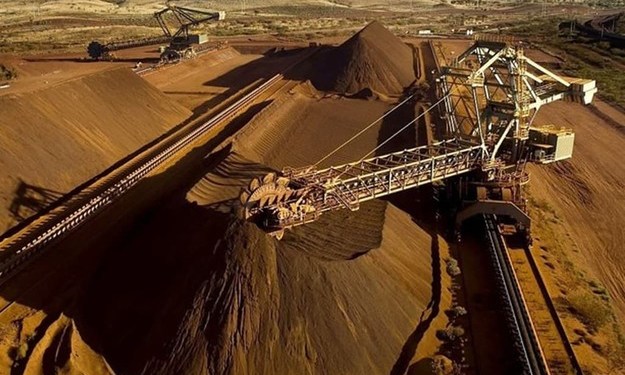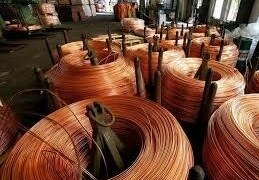(Bloomberg) — President Donald Trump is dispatching two top economic deputies to China in hopes of a quick deal on trade. They may find the reality on the ground more daunting.
Trump said on Tuesday that Treasury Secretary Steven Mnuchin will depart for China within days. Mnuchin is expected to be accompanied by U.S. Trade Representative Robert Lighthizer.
“We have a very good chance of making a deal,” said the president, who gave no other details. If an agreement isn’t reached, the U.S. will follow through with a plan to impose tariffs on as much as $150 billion in Chinese imports, Trump said. China has vowed to retaliate with duties on everything from U.S. soybeans to airplanes, and tensions have been worsened by U.S. crackdowns on ZTE Corp. and Huawei Technologies Co. over sanctions infringements.
If recent history is a guide, the trip may be long on ceremony and short on concrete outcomes. When Trump himself visited Beijing in November, he was treated to a lavish banquet in the Forbidden City. However, the deals he announced were mostly non-binding promises that could take years to bear fruit. A 100-day action plan on trade announced last year during a summit between Trump and President Xi Jinping did little to address trade imbalances, and a two-way formal economic dialogue has been suspended.
China Feud
It’s unlikely the sides will achieve a breakthrough that prevents the tariffs from taking effect, “given the credibility each has staked in showing resolve,” Michael Hirson, head of China research at New York-based Eurasia Group and formerly the Treasury Department’s chief representative to Beijing, wrote in a note.
“Beijing will not make steep and immediate concessions. Xi is too confident in his political strength vis-a-vis Trump and too determined to avoid vindicating Trump’s pressure tactics.”
Fears of an escalating feud have rattled markets and prompted the International Monetary Fund to warn that trade tensions risk undermining the strongest global upswing since 2011. Business groups such as the U.S. Chamber of Commerce and a lobbying council representing major technology companies have been urging Trump to avoid a prolonged dispute that would disrupt supply chains and raise prices for consumers.
Sanctions Bust
Tensions also have risen after the American government banned ZTE, a Shenzhen-based telecommunications gear maker, earlier this month from buying crucial U.S. technology for seven years after the U.S. Commerce Department said it violated a sanctions settlement. Following the ZTE ban, China’s Ministry of Commerce said it would take necessary measures to protect the interests of its companies.
The U.S. Justice Department has joined two other agencies probing Huawei Technologies Co. for possible violations of Iran sanctions, two people familiar with the matter said. The Federal Bureau of Investigation, which is overseen by Justice, has been looking into transactions by the Shenzhen-based mobile and telecommunications giant, the people said.
“A deal that ends with both sides living happily ever after is unlikely,” said Pauline Loong, managing director at research firm Asia-Analytica in Hong Kong. “The question is what is China willing to offer up in a timely, transparent and predictable manner. What it has always been reluctant to offer is specifics.”
It’s not clear what the U.S. will ask for. Mnuchin has been in talks with Vice Premier Liu He, with the aim of getting concessions on automobiles and financial services. But Trump has also suggested he’s after bigger game, asking China to cut its trade surplus with the U.S. by $100 billion annually and demanding that it curtail support for high-technology industries. The U.S. had a record $375 billion trade deficit with China last year.
The outlook for talks is “quite gloomy,” said Gai Xinzhe, an analyst at Bank of China’s finance institute in Beijing.
The U.S. has accused China of subsidizing high-technology companies and forcing foreign companies into transferring technology in areas like robotics, aerospace and artificial intelligence. U.S. demands that the Asian nation curtail support for high-tech industries caused talks earlier this month to break down, Bloomberg News reported.
In a speech at the Boao Forum for Asia this month, Xi pledged to open sectors from banking to auto manufacturing, increase imports, lower foreign-ownership limits on manufacturing and expand protection of intellectual-property rights — all central issues in Trump’s trade agenda. Trump welcomed the promises to further open up.
“Beijing will move quickly to implement Xi’s recent commitments at Boao to cut tariffs and ease joint venture requirements in the auto sector, moves that were designed to appeal to Trump,” Hirson wrote. “Beijing may also agree to lower tariffs on, or increase imports of other U.S. exports, including .”
“These measures won’t put a lasting dent in the deficit, but could result in enough tweetable announcements for Trump to declare victory,” he said.
People shouldn’t read Mnuchin’s visit as a sign the Trump administration is looking for a truce, said Lu Zhengwei, chief economist at Industrial Bank Co. in Shanghai. It only shows that negotiations are taking place, he said.
“China is willing to solve the disputes, but it will never accept conditions that will be at the cost of its own development,” he said. “China won’t be a slave to the U.S.”
(Adds ZTE and Huawei details from eighth paragraph.)
To contact Bloomberg News staff for this story: Kevin Hamlin in Beijing at [email protected];Andrew Mayeda in Washington at [email protected];Miao Han in Beijing at [email protected]
To contact the editors responsible for this story: Jeffrey Black at [email protected], ;Sarah McGregor at [email protected], Jeff Kearns
©2018 Bloomberg L.P.
Source: Investing.com




























